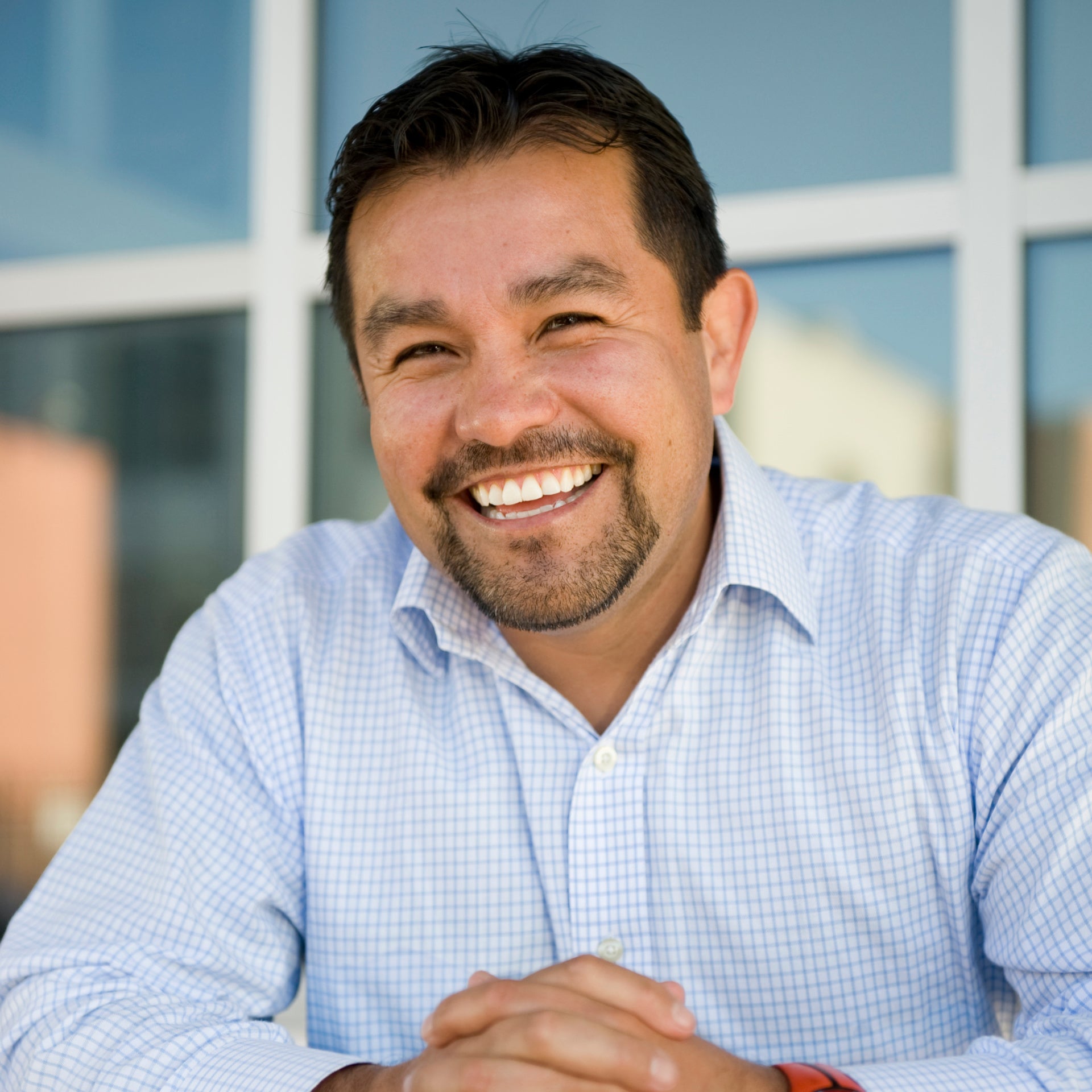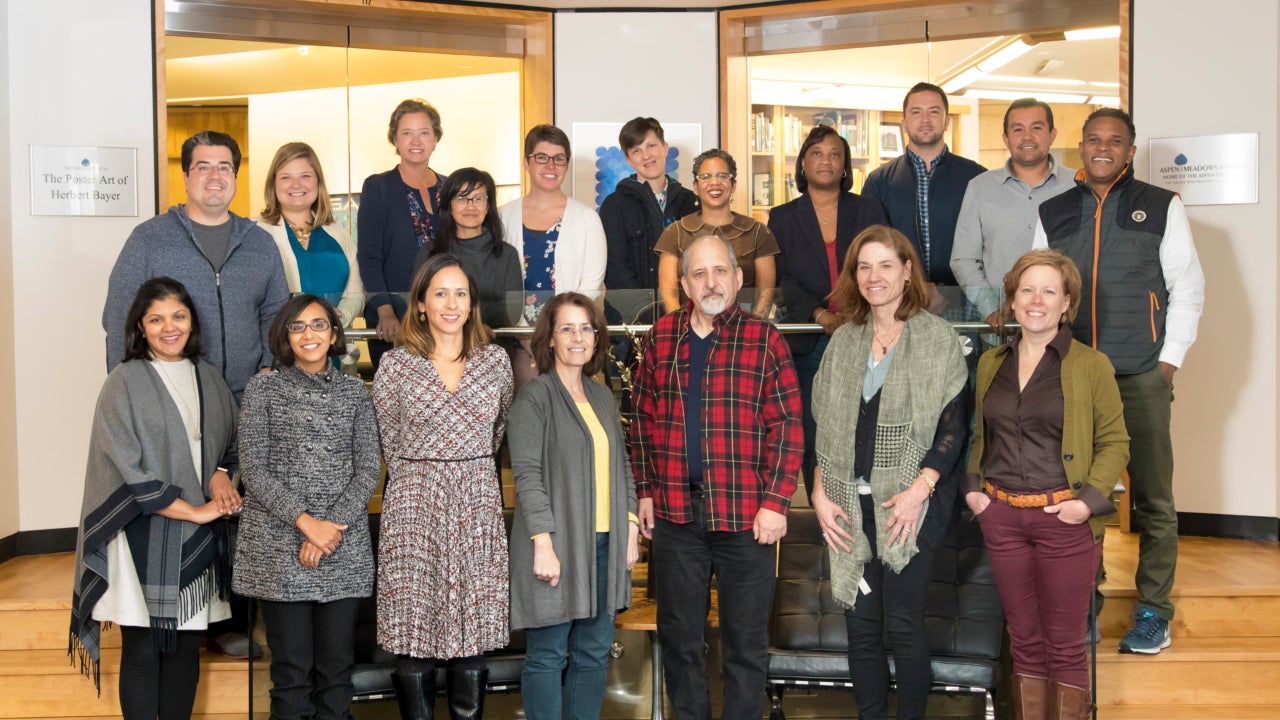Job Quality Fellow, Class of 2017-18
Director of Equity & Strategic Partnerships
Office of Oakland Mayor Libby Schaaf

What does job quality mean to you, and why is it important?
Job quality is something I have been thinking about since I was a little boy. Growing up, I learned the value of good work from my dad, who was a business owner in the agriculture industry. It’s an industry where a person can work hard but still not have access to good work in terms of being able to provide for themselves and their family. My dad instilled in me the value of wealth-building opportunities in any job, whether it is working in a field or managing a business.
Access to a job is not sufficient these days, particularly in cities like Oakland where the cost of living is rising. Residents have to be able to build both savings and wealth and access a career path that provides upward mobility. A quality job is an opportunity to improve one’s life and to support one’s family and community. I believe that when someone is given a good opportunity and a good job, they are more likely to provide the same for others.
Describe your organization’s work and how it’s connected to job quality.
I work at the Office of Oakland Mayor Libby Schaaf, where I serve as the Director of Equity and Strategic Partnerships. In this role, I lead the city’s partnerships with public, nonprofit, and corporate communities, through which we aim to foster equitable opportunities and economic security for the people of Oakland. As part of this work, I also oversee the city’s workforce development system.
Like many cities, Oakland faces a paradox. Unemployed residents struggle to find work that will support a stable livelihood, while jobs that would provide exactly that go unfilled. To address these challenges, we have developed a dual approach. First, we are revamping the city’s workforce development system to meet the needs of businesses and better connect our residents to the good jobs that exist. At the same time, we are working to support businesses and entrepreneurs to create more good jobs through our economic development efforts. Our goal is to ensure that Oaklanders, especially those individuals and families who have historically had limited access to opportunities, can work in good jobs, get on a career path, and build their assets.
What does success look like in your work, and how are you working to achieve it?
We have set ambitious outcomes for our work. Over the next 10 years, we hope to increase the percentage of Oaklanders that earn living wages by 50 percent, reduce the asset poverty rate of African Americans and Latinos by half, and reduce the unemployment rate of African Americans and Latinos by half. Currently, 47.8 percent of African American households and 46.9 percent of Latino households in Oakland are considered asset poor.[1]
To achieve these outcomes, we recently formed and began convening an Economic Security Working Group that aims to ensure our residents can access quality employment that will allow them to afford to continue living in Oakland. The working group brings together leaders of several City of Oakland departments, including Economic and Workforce Development, Human Services, and the Oakland Housing Authority. We are pursuing several strategies, including working directly with employers to improve the quality of the jobs they offer. We are also exploring potential policy incentives to ensure the city’s businesses are providing the right workplace conditions for workers to retain their jobs, improve their skills, and advance in their careers. In addition, we plan to integrate other financial empowerment strategies for workers, including asset accumulation, debt reduction, and small business creation.
What other strategies are you pursuing related to job quality?
We are pursuing several strategies focused on the city’s workforce development services with the goal of better connecting residents to good jobs. First, we are supporting some of Oakland’s most successful sector-focused training and trade apprenticeship programs in sectors like advanced manufacturing, construction, healthcare, and technology, among others. These programs help provide job seekers with the skills they need to fill local, middle-skill jobs that are growing in number, pay significantly above minimum wage, provide increased economic security, and present an entry-point for career mobility. By equipping job seekers with these skills, we are also supporting the growth of businesses and industries that are providing these quality jobs in Oakland.
Some of our workforce strategies are focused specifically on increasing access to quality employment for young people of color. For instance, we are expanding our Mayor’s summer jobs program, Earn and Learn, into a year-round effort. We are also working to further improve delivery of workforce services to young people of color through a project focused on designing new, innovative systems and strategies. Additionally, we are working to integrate financial capability and asset-building strategies into the city’s workforce development services to support job seekers and help put working residents on the path to economic security.
Based on our work so far, we are hearing from residents that they are getting into better jobs —and that these jobs are allowing them to invest in their families and education and build their skills so that they can have upward mobility. This is just a start, and we’re planning to build on this momentum. We believe defining incremental goals and moving rapidly toward more ambitious targets can add up over time to systems changes that improve the quality and accessibility of work.
Describe the experience and perspective you bring to the Job Quality Fellowship.
Prior to my work in the Mayor’s Office, I spent the bulk of my professional life focused on building Inner City Advisors/Fund Good Jobs, an organization in the Bay Area that aims to help small- and mid-size employers grow, raise capital, and create “good jobs” for residents that have faced high barriers to employment. Through this work, I began to more purposefully define what a good job is and develop a model of how to create those good jobs — a perspective that I bring to my efforts shaping policies and systems in the city of Oakland. In my work with private businesses, the public sector, nonprofits, and philanthropy, I’ve also developed a reputation for “big tent” coalition-building in the service of realizing my vision of an America powered by financially healthy enterprises that provide good jobs and community benefits. As a Job Quality Fellow, I draw on and share the learning and best practices I have acquired though my experiences.
What do you hope to achieve through the Job Quality Fellowship?
In Oakland, as in many of America’s cities, disparities in economic outcomes — especially for African American and Latino residents — continue to grow. It has increasingly become clear that we, as citizens, have a responsibility to ask tougher, deeper questions not only to better understand root causes of these disparities, but also to constructively and incrementally address these issues.
If we are serious about creating prosperity that truly works for all, we have to start by ensuring we have the right leaders with the right values in the right place to lead grassroots and systems efforts that will turn into movements. This all starts with the individual and then with a collection of individuals. The Aspen Institute Economic Opportunities Program has assembled a diverse group of individuals that are not only good thought leaders, but also have a track record of actually doing the work. The dimensions that make a quality job are continuously evolving, and so must our collective strategies. I look forward to learning from the other Fellows and ensuring the work we are doing remains relevant to the needs of our communities and to the people whose lives we are trying to make secure.
[1] The asset poverty rate is the percentage of households without a financial cushion to subsist at the poverty level without income for three months. According to Prosperity Now, as of 2011, 45.6 percent of black households and 43.3 percent of Hispanic households in the U.S. were asset poor, compared to 18.7 percent of white households.
Share now
Tweet “The dimensions that make a quality job are continuously evolving, and so must our collective strategies.” @jcorona44
Tweet “If we are serious about creating prosperity that truly works for all, we have to start by ensuring we have the right leaders with the right values in the right place.” @jcorona44
Tweet “Like many cities, Oakland faces a paradox. Unemployed residents struggle to find work that will support a stable livelihood, while jobs that would provide exactly that go unfilled.” @jcorona44
Keep in touch
Learn how EOP is helping low- and moderate-income Americans connect to and thrive in a changing economy. Sign up to receive news about the Job Quality Fellows and other announcements via email.
We are grateful to the Ford Foundation and The Prudential Foundation for their support of this work.
